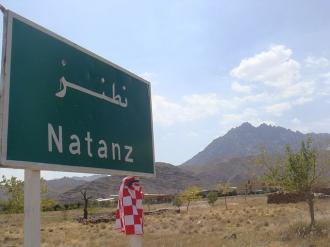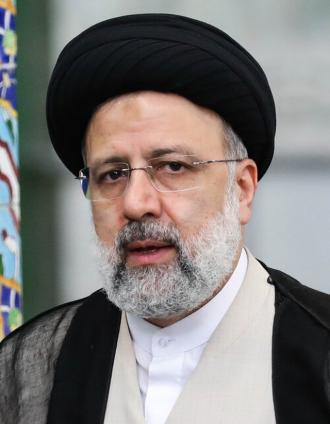We begin the reciting of Selichos on Motzei Shabbos prior to Rosh Hashana, the anniversary of Man coming into existence, to acknowledge that all of Creation, which began on that very first day of the week, was wrought for the purpose of man to manifest G-d’s presence and benevolence in all of his subsequent interactions with the material world.
The Terumas HaDeshen maintains that we specifically begin these fervent appeals for selicha, forgiveness, after having just experienced the joy of Shabbos, both spiritually and physically, so that we may enter this ‘encounter with the Divine Presence not lethargically nor in despair but in a spirit of joyous observance of His mitzvos, directives’.
One would expect to discover an opening sentiment that reflects this uplifting reality. Yet, the very first introductory words in the Selichos selections, begins with a sudden splash of cold water on all that enthusiasm.
לך ד' הצדקה ולנו בושת הפנים, Yours, my Lord, is the righteousness and ours is the shamefacedness
The excitement we entered with is dashed with a sense of shame over how undeserving we are of His kindness. Where has all the joy gone?
What exactly is this ‘shamefacedness’ that we refer to?
The Talmud teaches that boshes panim is a genetic trait of all those whose ‘fathers stood upon Mount Sinai’. One who is brazen and lacks this characteristic of shamefacedness must be suspect of his pedigree. (נדרים כ.)
Is this to be taken literally that it is impossible for someone who descends from an ancestor who ‘stood upon Mount Sinai’ to act boldfaced?
Why does the Talmud mention his ‘father’ having ‘stood’ on the mountain, the main issue is whether he was there or not, why the emphasis on his standing?
The Torah describes the awesome revelation of G-d at Mount Sinai. Moshe hearing the people’s reservations of being exposed to such an overwhelmingly frightful experience assures them they have nothing to fear. He explains how G-d did this to elevate them and, ובעבור תהיה יראתו על פניכם לבלתי תחטאו (שמות כ יז), so that awe of him shall be upon your faces, so that you shall not sin.
This is the moment when G-d imprinted upon their souls this innate ‘shamefacedness’ the Talmud references. Although this verse speaks only in regard to those who were at the giving of Torah and makes no reference to future generations, Rabbi Nissim of Gerona, the ‘Ran’, teaches that another verse elsewhere reveals that it is inbred for all future generations.
When Moshe reiterates, on the Plains of Moav, the covenant the nation entered earlier at Sinai, the Torah reports that this was undertaken on behalf of all future generations.
ולא אתכם לבדכם אנכי כורת את הברית הזאת... כי אשר ישנו פה עמנו עמד היום ואת אשר איננו פה עמנו היום (דברים כט יג-יד), Not with you alone do I seal this covenant... but with whoever is here, standing with us today before G-d, our Lord, and with whoever is not here with us today.
Rabbi Nissim evidently sees in this reentering of the covenant a continuation of all that was effected at Mount Sinai, so that the resulting shamefacedness that was infused into our DNA then is present in all subsequent generations as well.
Clearly this verse is the source for the Talmud’s stress on our fathers having specifically ‘stood’, as it explicitly expresses ‘whoever is here, standing with us’. But the question still begs as to why did the Torah decide to accent this? Additionally we must ask why when talking of those who were present it mentions their having ‘stood’ there but when referring to later generations who weren’t there it simply states their having ‘not been here’, omitting their not having ‘stood’ with us?
The remarkable gaon Rav Avraham Saba, who was expelled from Spain, losing his family and all his possessions, and writing his amazing commentary on Chumash, Tzor HaMor, totally from memory, offers a brilliant and most insightful interpretation on our verse.
One reading the verse superficially would conclude that the first part of the verse: whoever is here, standing with us today before G-d, speaks of those who were physically present at Mount Sinai, with the second half: whoever is not here with us today, referring to all the future descendants. He claims otherwise. Standing doesn’t refer to a physical stance for that is irrelevant. Standing means being ‘present’, attuned and focused on one’s mission. The verse speaks not merely regarding their physical position but their disposition, their essence, their very souls presence standing prepared and attentive to their goal. It is for this reason the Torah describes how they were standing with us today before G-d, asserting their mindfulness of the moment. The presence of not only their bodies but their souls as well reflect on the future generations that were equally ‘present’ perforce the lasting impression their ancestors had these descendants. The second segment depicting whoever is not here with us today, is describing those who although were physically there but whose minds were wandering in foreign fields. They weren’t ‘standing’ nor were they ‘before G-d’, they were ‘not with us’ in spirit because they weren’t ‘standing before G-d’.
May I humbly suggest, that is precisely what the Talmud means when it states that anyone who lacks the quality of shamefacedness evidently their father didn’t ‘stand’ at Mount Sinai. He might have been there in body but his spirit was far removed from the experience and thus disabled the mighty revelation of G-d at Mount Sinai to penetrate into the fiber of his being so it may be transmitted for all of eternity.
How could it be though that these individuals weren’t impressed, what about the fire, smoke and sounds, could a human possibly not be affected by the presence of the Shechina in all its glorious manifestation?
There are two types of shame. One is founded on guilt, where one is embarrassed that after all G-d has done for me, I haven’t lived up to His expectations and have, as it were, disappointed Him. That shame stems from a fear of losing the benefits that come from the relationship we have with G-d. It is more closely related to a fear of punishment.
But there is a more profound and elevated sense of shamefacedness. When one is in a extraordinary loving relationship with a partner whose love is unconditional and eternal there is a constant inner desire to do as much as can to reciprocate that love, not because I owe it to the partner but because my love is so intense that I want to do whatever I can to bond more closely with my partner. That sense of ‘shame’ that I haven’t yet done enough is what drives us ever closer to the one we love. This ‘shame’ is rooted in a healthy sense of awe for the Almighty who never ceases in His care for us.
On the day the Mishkan, the Tabernacle was dedicated; Aharon HaKohen hesitated because of his shame in having participated in the Sin of the Golden Calf. The Sifra reports that Moshe observing his hesitation tells him, למה אתה בוש לכך נבחרת, “Why are you shamefaced, for this you were chosen”.
The Sifra presents a parable to explain the dialogue between the two brothers. Like a bride on the day of her wedding displays a hesitation, a shyness in presenting herself to her groom, so too did Aharon went forward with restraint. The maidens however encouraged the young bride to go forward with pride and confidence with the awareness of how beloved she is in the eyes of her groom.
בושת פנים, can intimate not simply בושת, shame, פָּנים, on our face, but more significantly a shame, or better bashfulness, that stems from our פְּנִים, inner essence.
There were those who ‘stood before G-d’ on Mount Sinai, with the enthused awareness of His utter and unquenchable devotion to us, which prodded within their souls a powerful desire to never come up short in our dedication to Him. It was not a shame of guilt or defeat but rather a humbling of ourselves in complete submission, striving to grow continuously in reciprocating His love, always fearing that we have never done enough.
We begin Selichos with a most exquisite expression of our love for G-d. Turning to G-d we exclaim our consciousness of how righteous He has been, showering us with unconditional love.
In the same vein we proclaim, ולנו בושת פנים, we want so badly to express our love in return. We realize that despite His never waning in His affection towards us even when we fail, we so desire to properly give Him back our love, not because He desires it, but because we need it, we desire it, we want to connect to the source of our joy.
Love coupled with awe is what defines our relationship with G-d.
We must stand confident in His love for us, but at the same time realize we haven’t responded in kind. We aren’t defeated in that reality, but rather empowered. We know He lovingly awaits us despite our deficiencies and precisely for that reason we must find our way back into His embrace.
באהבה,
צבי טייכמאן















